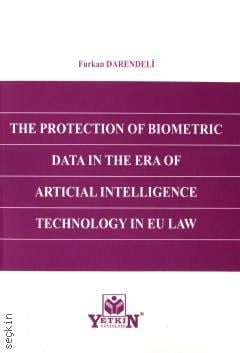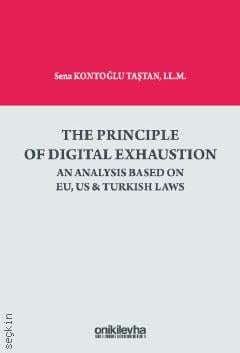>
Hukuk Kitapları>
Bilişim Hukuku>
The Protection of Biometric Data in the Era of Artificial Intelligence Technology in EU Law

The Protection of Biometric Data in the Era of Artificial Intelligence Technology in EU Law
1. Baskı,
Haziran 2023
Kitabın Detayları
Dili:
İngilizce
Ebat:
13x19
Sayfa Sayısı:
216
Kitabın Fiyatı:
200,00₺
Temin süresi 2-3 gündür.
Kitabın Açıklaması
With the development of technology, biometric data has become the most important trend of today. in addition to providing secure access to physical and logical assets, the increasing need for fraud reduction, fıght against erime and criminals and security have made biometric data an important technology. This does not oecur without possible legal consequences in the fıeld of human rights. Unless legislators begin to consider the impact of biometrics technology on privacy, human rights, ete, biometric data will alvvays be at risk of being misused and even abused. In the fırst part of the thesis, "Importance of biometric data, Privacy and biometric data" will be examined in the light of why biometric data is important and why it should be proteeted.
On the other hand, Artifıcial intelligence is now playing a majör role in transforming and powering industries ali över the world. Artifıcial intelligence systems can process personal data. Because personal data can contribute to the data sets used to train machine learning systems, that is, to create their algorithmic models. in addition, artifıcial intelligence systems, from personal data; can generate information, make predietions and use the data obtained.' Thanks to artifıcial intelligence, ali kinds of personal data (including biometric data and other sensitive data) can be used to analyze, predict and influence human behavior.
The global Artifıcial intelligence (Al) market is estimated to reach a market value of 190.61 billion dollars in 2025. The Artifıcial intelligence annual growth rate between 2020 and 2027 is expected to be 33.2 %. Undoubtedly, this rapid growth has both advantages and disadvantages. Especially concerns about fundamental rights and freedoms are increasing. Moreover, one of the signifıcant concerns is the relationship betvveen artifıcial intelligence and biometric data. The world legislators are conducting various studies to resolve these concerns. The draft proposal of artifıcial intelligence offered by the European Commission constitutes the fırst artifıcial intelligence regulation study in the world. in this context, the definition, history, importance of artifıcial intelligence, artifıcial intelligence strategies of the European Union and artifıcial intelligence in the future are examined in the second part.
Kitapla İlgili Kategoriler
Kitabın Fiyatı:
200,00₺
Temin süresi 2-3 gündür.
Bu kitaplar da ilginizi çekebilir
Hakkımızda
|
Uluslararası Yayınevi Belgesi|
Kaynakça Dosyası|
Kişisel Verilerin Korunması |
Üyelik|
Siparişlerim|
İade Politikası|
İletişim


